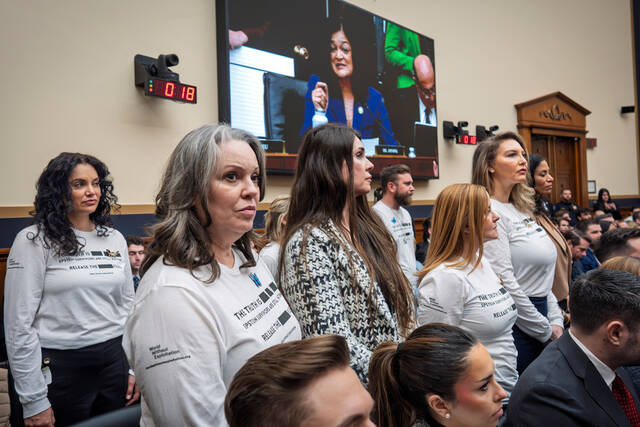Duquesne University risks setting a dangerous precedent and violating its own rules regarding academic freedom by trying to oust a professor for using a racial slur during a lecture about race, the suspended professor’s attorney said Wednesday.
“It’s a knee-jerk reaction,” Warner Mariani, attorney for the embattled professor, Gary Shank, told the Tribune-Review by phone. “If they do this, it’s going to send a chill down the spine of every professor … that they may be subject to offending someone and because of that offended person, they’re subject to termination.”
University’s ultimatum: Resign or face dismissal
Shank — who’s been teaching for nearly three decades and a professor at Duquesne since 1997 — has been on paid leave since Friday, when video was posted to Twitter of the portion of his Sept. 9 virtual class that drew backlash from some students, alumni and community members. University officials suspended Shank and sent an apology to the students enrolled in his class “moments after” learning of Shank’s use of the N-word multiple times during a presentation last week related to race, culture and language.
“The suspension will last until such time as the matter is resolved,” Gabriel Welsch, vice president of marketing and communications, said by email late Wednesday.
On Wednesday morning, the university’s legal team delivered Shank an ultimatum — resign voluntarily, or face the dismissal process, according to emails shared by Shank’s attorney. The university first asked Shank to submit his resignation by noon Wednesday, then sent a follow-up email extending the deadline until the end of day Thursday.
Shank has no intention to resign, according to his attorney.
Shank, who is white, gave participants of the online class in question “permission” to use the N-word “in a pedagogical sense,” though no students did so during the two minutes of video posted to social media. The professor then repeatedly said the word while explaining he was demonstrating a point about how when he was younger it was “a very commonly used word.”
“He did it for educational purposes and that was not his intention to offend or disparage anyone,” Mariani said. “It was to teach his students.”
‘Censorship is a cancer on the academic enterprise’
A Philadelphia-based civil liberties group sent a scathing letter Wednesday to Duquesne University President Ken Gormley saying it is “gravely concerned” about Shank’s suspension marking “a clear erosion of the academic freedom to which the university is committed” and warned that “censorship is a cancer on the academic enterprise.”
“Academic discussions require that faculty members and students alike have the freedom to discuss, reference, and view materials that may shock or offend others, including materials and literature reflecting and illustrating our nation’s long struggle with racism,” states the letter from the Foundation for Individual Rights in Education, or FIRE, which describes itself as a nonprofit, nonpartisan organization that defends academic freedom, freedom of conscience and other rights at college campuses nationwide.
“Accordingly, the use of racial slurs in a pedagogical context is not uncommon,” continues FIRE’s letter, which cites several examples of courts deciding against university attempts at censorship around the country. “Princeton University, for example, defended a professor who uttered the same racial slur in an anthropology course to discuss cultural and linguistic taboos.”
In contrast, soon after learning of what happened during Shank’s course, School of Education Dean Gretchen Generett issued a statement rebuking Shank’s use of the racial slur: “To be clear, I believe that there is never a time, pedagogically or otherwise, for a professor to create a hostile learning environment. … Using the ‘N-word’ or seemingly encouraging students to use that word is not in keeping with the mission of the university, the School of Education, or the Pennsylvania Department of Education.”
FIRE argues in its letter that Duquesne’s actions against Shank violate not only the university’s own handbook and policy, but also expose the university to legal liability and possible U.S. Department of Education sanctions.
The group says that Shank’s use of the N-word was “not conduct directed in an insulting manner at any particular student,” nor does it amount to discriminatory conduct or harassment. It accused the university of shirking its duties “in the face of controversy and public anger.”
“Academic freedom at its core means providing breathing room for faculty members to engage in difficult material without fear of formal discipline, provided they do not harass their students,” the FIRE letter states. The letter adds that Duquesne’s own policy commits “to refraining from punishing faculty members for discussing ideas, topics and material that, however deeply uncomfortable or offensive to others, is pedagogically relevant to the course.”
Shank immediately apologized to class
When asked why Shank used the full word instead of saying an abbreviated version, such as “the N-word,” Mariani said, “He taught it the way he did because he thought it would be the most effective way of teaching.”
The same day of the Sept. 9 course, after learning about student concerns, Shank emailed the entire class an apology statement, saying he considered his students to be “like part of my family” and that it was “deeply troubling to me to have had this impact.” He then spent much of Friday’s class apologizing, The Duquesne Duke reports and Mariani confirmed.
“We do know that Professor Shank apologized to students via email,” Welsch said. “We have been informed that Professor Shank has retained counsel. As this is a personnel and legal matter, the university cannot comment further.”
Like Shank’s attorney, the FIRE group called on Duquesne to reinstate Shank immediately.
The university has tapped a replacement to teach Shank’s courses during his suspension.
“We’ll do whatever it takes to secure his job,” Mariani said.








